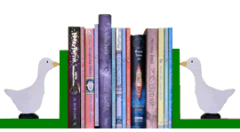Traditional publishing is a team effort. No one at a publishing company can do everything, so the company hires full time staff or freelancers to do the various jobs involved in producing a book. The same applies to self-publishing. When you decide to take the independent route, you become a publisher and, just like the CEO of Penguin, you can buy in the skills you need from experts. So let’s look at the steps involved in publishing a book to see where you may need help.
Writing the book
I’m assuming you can do that yourself.
Editing and rewriting
Whether you’re writing fiction or non-fiction, you have much more background knowledge than your readers and that gets in the way of seeing how well a reader can follow the story or understand the information you’re presenting. That’s why a fresh pair of eyes can spot potential problems and places where the story can be improved and tightened. (see What editors do)
Some people use beta readers instead of paying a structural editor. This can work if your readers have some idea of what they are doing and the courage to be truthful. A “that’s nice, dear” from your Auntie Muriel is not a good substitute for constructive criticism from an expert.
Once you’ve had the feedback on your book, it’s time for the final rewriting. That’s usually the author’s job, not the editor’s. However, some editors will do this for you if you feel the task is beyond you.
Copy editing
Once you are satisfied that your book is as good as you can make it, copy editing involves checking the file for spelling and punctuation mistakes, poor grammar and the continuity errors that often creep in while you are writing. This is a very important stage and one that is definitely best carried out by an experienced copy editor. You are too close to your work to spot all these errors yourself.
Designing the cover
Having the right cover is vital to your book’s success and an amateurish cover suggests that the writing is amateur too. So only create your own cover if you have a good eye for design and can produce a quality product. Having your cover professionally designed can be a good investment in the long run.
Creating the book
For an ebook, this involves turning your Word file into epub or Kindle format. There are various ways to do this that are not too difficult, but you may prefer to pay a technical expert to do this for you. (see Ebook creation – the absolute basics)
Laying out a book for print is more complicated than creating an ebook, and getting it wrong can make your book look amateurish. Only try to do it yourself if you’re willing to put in plenty of time and effort learning the necessary skills. If you’re not, hire a professional book designer to do it for you.
Proof reading
Once the book is ready, you need to proof read it carefully to spot any mistakes. Although you can do this yourself, it’s good to have at least one other person read the whole book for you. Some people are better at spotting errors than others so you may want to use an experienced proof reader.
Putting the ebook online
Once the ebook has been created, putting it on sale on Amazon or Kobo is relatively simple and doesn’t require any technical skill. It’s much better to do this yourself as you then maintain control of what’s happening to your book and can tweak the blurb, categories and price to your heart’s content.
Marketing
When I was reviewing children’s books, I was contacted by quite a few PR/marketing companies who had taken on a self-published book but freely admitted that they didn’t really know what they were doing. This taught me that, although there are plenty of people willing to take your money to market your book, they won’t necessarily do it any better than you can.
You know your book better than anyone else and hopefully you also know your target market well. So the best person to be in charge of your marketing campaign is you. However, you may need to buy in help with some aspects of the campaign that you find difficult. For example, you may decide to use a web designer to create your website and, if your own design skills are weak, you may ask a graphic designer to create promotional material for you.
Diana Kimpton
